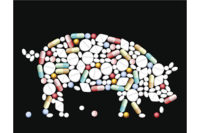FSIS inspection system changes coming

The Food Safety and Inspection Service (FSIS) will begin implementing its Public Health Information System (PHIS) by the end of this year.
PHIS is designed to be a unified, real-time data system to assist FSIS in decision-making; both at individual plants and in developing policy. It will replace existing FSIS systems, including Performance Based Inspection System, Resource Information System, and Automated Import Information System.
PHIS will be used with domestic, import and export inspection activities. In addition, the system will include a predictive analytic program. FSIS will employ “e-authorization” to provide establishments with access to establishment data and the ability to enter information, such as requests for export health certificates and appeals of Noncompliance Records (NRs).
On domestic inspection, FSIS inspection basically remains the same. There are a few changes of note:
* Zero-tolerance checks will be a separate inspection task;
* HACCP procedures 01 and 02 will be replaced with a single procedure where inspectors would verify all CCPs in a process rather than one; and
* There will be a new Hazard Analysis Verification (HAV) task, through which inspectors will review an establishment’s hazard analysis to ensure all hazards are identified and verify that the establishment has support on file for its decisions.
Agency officials will enter information electronically (with a printed version provided to establishments). This will include NRs, Memorandum of Interview, plant profiles and laboratory results.
On NRs, inspectors will document the regulation they verified via a drop-down menu and whether they found noncompliance. If noncompliance is found, inspectors are to enter the specific findings.
On import inspection, information on imports, such as health certificates and incoming loads, will be transmitted electronically. From the results of import inspections, PHIS will direct both import inspection activities and foreign country audits.
On export inspection, the process will be handled electronically. The electronic system will better ensure the certificates comport with the foreign country import requirements.
On predictive analytics, the PHIS system will include a predictive analytics system enabling FSIS to use the PHIS data to identify trends and direct agency actions automatically when certain triggers occur. On the basis of the data continually entered in real time, PHIS will generate outputs, such as:
* Alerts (e.g., a positive laboratory finding),
* Scheduling tasks or samples (e.g., perform a HAV),
* FSIS management controls (e.g., notice that scheduled tasks not being performed at a particular establishment), and
* Reports (e.g., a summary of NRs issued by task code) for FSIS, other federal agencies or Congress.
FSIS intends to train inspectors and supervisors together. The agency will use a “rolling implementation” by circuits across the country. This means that, in certain cases, companies with establishments in multiple circuits may have different establishments operating under different systems. Additionally, FSIS will conduct outreach programs for industry, such as webinars.
FSIS hopes to begin implementation in the late fall, so get ready, cause here it comes.
Dennis R. Johnson is a principal with Olsson Frank Weeda Terman Bode Matz PC in Washington, D.C. Johnson has 30 years experience in food-safety law and regulation, representing large and small meat and poultry companies.
PHIS is designed to be a unified, real-time data system to assist FSIS in decision-making; both at individual plants and in developing policy. It will replace existing FSIS systems, including Performance Based Inspection System, Resource Information System, and Automated Import Information System.
PHIS will be used with domestic, import and export inspection activities. In addition, the system will include a predictive analytic program. FSIS will employ “e-authorization” to provide establishments with access to establishment data and the ability to enter information, such as requests for export health certificates and appeals of Noncompliance Records (NRs).
On domestic inspection, FSIS inspection basically remains the same. There are a few changes of note:
* Zero-tolerance checks will be a separate inspection task;
* HACCP procedures 01 and 02 will be replaced with a single procedure where inspectors would verify all CCPs in a process rather than one; and
* There will be a new Hazard Analysis Verification (HAV) task, through which inspectors will review an establishment’s hazard analysis to ensure all hazards are identified and verify that the establishment has support on file for its decisions.
Agency officials will enter information electronically (with a printed version provided to establishments). This will include NRs, Memorandum of Interview, plant profiles and laboratory results.
On NRs, inspectors will document the regulation they verified via a drop-down menu and whether they found noncompliance. If noncompliance is found, inspectors are to enter the specific findings.
On import inspection, information on imports, such as health certificates and incoming loads, will be transmitted electronically. From the results of import inspections, PHIS will direct both import inspection activities and foreign country audits.
On export inspection, the process will be handled electronically. The electronic system will better ensure the certificates comport with the foreign country import requirements.
On predictive analytics, the PHIS system will include a predictive analytics system enabling FSIS to use the PHIS data to identify trends and direct agency actions automatically when certain triggers occur. On the basis of the data continually entered in real time, PHIS will generate outputs, such as:
* Alerts (e.g., a positive laboratory finding),
* Scheduling tasks or samples (e.g., perform a HAV),
* FSIS management controls (e.g., notice that scheduled tasks not being performed at a particular establishment), and
* Reports (e.g., a summary of NRs issued by task code) for FSIS, other federal agencies or Congress.
FSIS intends to train inspectors and supervisors together. The agency will use a “rolling implementation” by circuits across the country. This means that, in certain cases, companies with establishments in multiple circuits may have different establishments operating under different systems. Additionally, FSIS will conduct outreach programs for industry, such as webinars.
FSIS hopes to begin implementation in the late fall, so get ready, cause here it comes.
Dennis R. Johnson is a principal with Olsson Frank Weeda Terman Bode Matz PC in Washington, D.C. Johnson has 30 years experience in food-safety law and regulation, representing large and small meat and poultry companies.
Looking for a reprint of this article?
From high-res PDFs to custom plaques, order your copy today!






